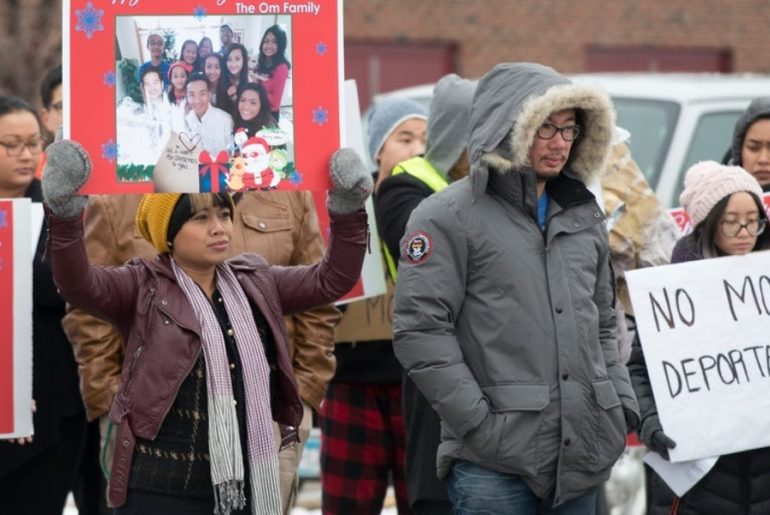Twenty five Cambodian refugees were deported by the Trump administration in mid-January, the first group of refugees from the Southeast Asian nation to face deportation in 2020. The deportation of these Vietnam War refugees is unprecedented, and the number of deportations has steadily increased under the current administration, despite agreements between the United States and Cambodia that have been in place for decades.
“I.C.E. is wiping out a generation of Cambodian refugees who mostly came to the United States as infants,” attorney Kevin Lo told Washington Monthly. “It’s heartbreaking that parents and grandparents who survived genocide to bring their children to safety are now losing them to deportation in their old age.”
Bill Herod, Khmer Vulnerability Aid Organization founder, says that 40 Cambodian deportees have died since 2002, with six deaths occurring since November. At least six deportees have committed suicide.
“The death by deportation label could easily be applied to those who have been diagnosed with severe mental health or physical conditions before deportation,” Herod said. “The psychological shock of deportation is more a factor in some of these deaths than the quality of Cambodian health care.”
Many Cambodian deportees have never even been to Cambodia, let alone speak the language or know anyone currently living there. And the deportations underscore several troubling and complex aspects of history between the U.S. and involved nations.
In the midst of the Vietnam War (1965-1973) the U.S. dropped more explosives on Cambodia — 2.7 million tons — than the Allies dropped in all of World War II. The country’s population at the time was smaller than that of New York City. Estimates are vague on how many people were killed, ranging from the low hundreds of thousands, and increasing from there, but no one has an accurate sense of the number killed during that time.
These bombings created entire waves of refugees and immigrants that fled to Phnom Penh, which destabilized the country’s urban-rural equilibrium. The conflict undermined Cambodia’s delicate food supply and citizens were left to starve, eating bark off the trees to survive near the end of the war.
Many argue the bombing gave rise to the brutal Khmer Rouge regime, stemming from the power vacuum left by the raids. Thousands of refugees from Cambodia and Vietnam were born in camps in the Philippines and Thailand, who eventually ended up in the U.S.
The removal orders have targeted Cambodian refugees who have some type of criminal record. But the Cato Institute sorted all ICE removals from 2009 to 2017 by severity of criminal conviction, and found that only 12 percent had committed violent crimes — and only 0.6 percent were convicted of murder.
The Immigration and Nationality Act, established in 1965, classifies certain crimes as “aggravated felonies” for immigration purposes. But the definition includes many charges, ranging from severe crimes like murder, to nonviolent ones like fraud. In 2017, the U.S. Supreme Court ruled that the INA and its definition of aggravated felony was unconstitutionally vague.
In a plurality opinion, Justice Elena Kagan argued that “deportation is a particularly severe penalty, which may be of greater concern to a convicted alien than any potential jail sentence.”

